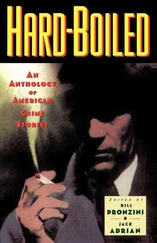“Did it have to rush around on one of those things?” Sharon asked.
“I think it liked to,” William said, surprised.
“Let us hope so,” Otto said. “Of course it did.”
“I loved the castles and the colored sand,” Sharon said. “But it was no life for a fish. We had to flush them down the toilet.”
William, normally so fastidious about food, appeared to be happily eating his cake, which tasted, to Otto, like landfill. And William had brought Sharon flowers, which it never would have occurred to Otto to do.
Why had lovely William stayed with disagreeable old him for all this time? What could possibly explain his appeal for William? Otto wondered. Certainly not his appearance, nor his musical sensitivity — middling at best — nor, clearly, his temperament. Others might have been swayed by the money that he made so easily, but not William. William cared as little about that as did Otto himself. And yet, through all these years, William had cleaved to him. Or at least, usually. Most of the uncleavings, in fact, had been Otto’s — brief, preposterous seizures having to do with God knows what. Well, actually he himself would be the one to know what, wouldn’t he, Otto thought. Having to do with — who did know what? Oh, with fear, with flight, the usual. A bit of glitter, a mirage, a chimera…A lot of commotion just for a glimpse into his own life, the real one — a life more vivid, more truly his, than the one that was daily at hand.
“Was there something you wanted to see me about?” Sharon asked.
“Well, I just…” Powerful beams of misery intersected in Otto’s heart; was it true? Did he always have a reason when he called Sharon? Did he never drop in just to say hello? Not that anyone ought to “drop in” on Sharon. Or on anyone, actually. How barbarous.
“Your brother’s here in an ambassadorial capacity,” William said. “I’m just here for the cake.”
“Ambassadorial?” Sharon looked alarmed.
“Oh, it’s only Thanksgiving,” Otto said. “Corinne was hoping — I was hoping—”
“Otto, I can’t. I just can’t. I don’t want to sit there being an exhibit of robust good health, or noncontaminatingness, or the triumph of the human spirit, or whatever it is that Corinne needs me to illustrate. Just tell them everything is okay.”
He looked at his cake. William was right. This was terribly unfair. “Well, I don’t blame you,” he said. “I wouldn’t go myself, if I could get out of it.”
“If you had a good enough excuse.”
“I only—” But of course it was exactly what he had meant; he had meant that Sharon had a good enough excuse. “I’m—”
“Tell Corinne I’m all right.”
Otto started to speak again, but stopped.
“Otto, please.” Sharon looked at her hands, folded in her lap. “It’s all right.”
—
“I’ve sometimes wondered if it might not be possible, in theory, to remember something that you — I mean the aspect of yourself that you’re aware of — haven’t experienced yet,” William said later. “I mean, we really don’t know whether time is linear, so—”
“Would you stop that?” Otto said. “ You’re not insane.”
“I’m merely speaking theoretically.”
“Well, don’t! And your memory has nothing to do with whether time is ‘really,’ whatever you mean by that, linear. It’s plenty linear for us! Cradle to grave? Over the hill? It’s a one-way street, my dear. My hair is not sometimes there and sometimes not there; we’re not getting any younger.”
At moments it occurred to Otto that what explained his appeal for William was the fact that they lived in the same apartment. That William was idiotically accepting, idiotically pliant. Perhaps William was so deficient in subtlety, so insensitive to nuance, that he simply couldn’t tell the difference between Otto and anyone else. “And, William — I wish you’d get back to your tennis.”
“It’s a bore. Besides, you didn’t want me playing with Jason, as I remember.”
“Well, I was out of my mind. And at this point it’s your arteries I worry about.”
“You know,” William said, and put his graceful hand on Otto’s arm, “I don’t think she’s any more unhappy than the rest of us, really, most of the time. That smile! I mean, that smile can’t come out of nowhere.”
—
There actually were no children to speak of. Corinne and Wesley’s “boys” put in a brief, unnerving appearance. When last seen, they had been surly, furtive, persecuted-looking, snickering, hulking, hairy adolescents, and now here they were, having undergone the miraculous transformation. How gratified Wesley must be! They had shed their egalitarian denim chrysalis and had risen up in the crisp, mean mantle of their class.
The older one even had a wife, whom Corinne treated with a stricken, fluttery deference as if she were a suitcase full of weapons-grade plutonium. The younger one was restlessly on his own. When, early in the evening, the three stood and announced to Corinne with thuggish placidity that they were about to leave (“I’m afraid we’ve got to shove off now, Ma”), Otto jumped to his feet. As he allowed his hand to be crushed, he felt the relief of a mayor watching an occupying power depart his city.
Martin’s first squadron of children (Maureen’s) weren’t even mentioned. Who knew what army of relatives, step-relatives, half-relatives they were reinforcing by now. But there were — Otto shuddered faintly — Martin’s two newest (Laurie’s). Yes, just as Corinne had said, they, too, were growing up. Previously indistinguishable wads of self-interest, they had developed perceptible features — maybe even characteristics; it appeared reasonable, after all, that they had been given names.
What on earth was it that William did to get children to converse? Whenever Otto tried to have a civilized encounter with a child, the child just stood there with its finger in its nose. But Martin’s two boys were chattering away, showing off to William their whole heap of tiresome electronics.
William was frowning with interest. He poked at a keyboard, which sent up a shower of festive little beeps, and the boys flung themselves at him, cheering, while Laurie smiled meltingly. How times had changed. Not so many years earlier, such a tableau would have had handcuffs rattling in the wings.
The only other representative of “the children,” to whom Corinne had referred with such pathos, was Martin’s daughter, Portia (Viola’s). She’d been hardly more than a toddler at last sight, though she now appeared to be about — what? Well, anyhow, a little girl. “What are the domestic arrangements?” Otto asked. “Is she living with Martin and Laurie these days, or is she with her mother?”
“That crazy Viola has gone back to England, thank God; Martin has de facto custody.”
“Speaking of Martin, where is he?”
“I don’t ask,” Corinne said.
Otto waited.
“I don’t ask,” Corinne said again. “And if Laurie wants to share, she’ll tell you herself.”
“Is Martin in the pokey already?” Otto asked.
“This is not a joke, Otto. I’m sorry to tell you that Martin has been having an affair with some girl.”
“Again?”
Corinne stalled, elaborately adjusting her bracelet. “I’m sorry to tell you she’s his trainer.”
“His trainer ? How can Martin have a trainer? If Martin has a trainer, what can explain Martin’s body?”
“Otto, it’s not funny,” Corinne said with ominous primness. “The fact is, Martin has been looking very good, lately. But of course you wouldn’t have seen him.”
All those wives — and a trainer! How? Why would any woman put up with Martin? Martin, who always used to eat his dessert so slowly that the rest of them had been made to wait, squirming at the table, watching as he took his voluptuous, showy bites of chocolate cake or floating island long after they’d finished their own.
Читать дальше










![Женя Джентбаев - neo futura [stories]](/books/692472/zhenya-dzhentbaev-neo-futura-stories-thumb.webp)

